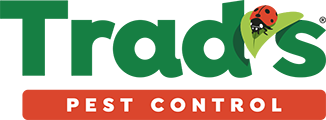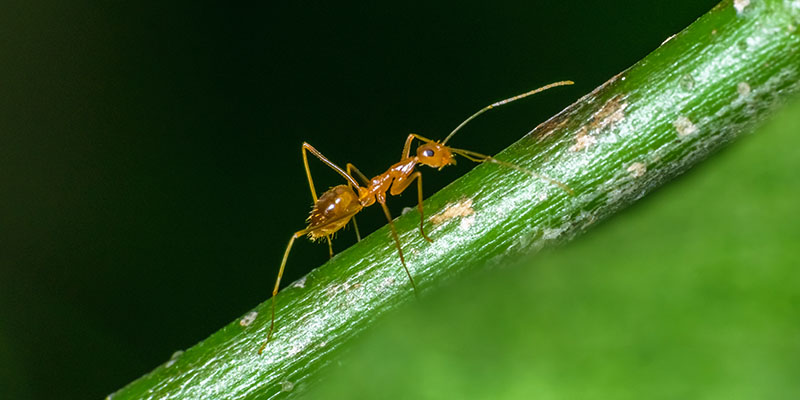Pharaoh ants, scientifically known as Monomorium pharaonis, are small but formidable pests that can become a significant nuisance once they infest a home. While they may appear harmless due to their diminutive size, Pharaoh ants are known for their ability to rapidly multiply and their resilience in building large colonies.
In this article, we will delve into the characteristics of Pharaoh ants, the health risks they pose, the potential damage they can cause to a home, methods to detect them, preventive measures to keep them at bay, and how professional pest control services can effectively eliminate them.
Characteristics of Pharaoh Ants
Pharaoh ants are native to the tropical regions of Africa but have now spread to various parts of the world, including the United States, and of course, Jacksonville. They are small, measuring only about 1.5 to 2 millimeters in length, and are pale yellow to reddish-brown in color. These ants have two nodes between their thorax and abdomen, distinguishing them from other common ant species.
These pests are known for their ability to adapt and thrive in a wide range of environments, making them particularly difficult to control. They are resilient to changes in temperature, can survive without food for extended periods, and exhibit a high level of mobility, often establishing multiple nests throughout a structure.
Health Risks Pharaoh Ants Pose
Pharaoh ants can pose significant health risks, particularly in healthcare facilities, where they have been a persistent problem. These ants are known to transmit various pathogens, including bacteria such as Salmonella and Streptococcus, as well as potentially spreading disease-causing organisms like Staphylococcus aureus.
Due to their small size, Pharaoh ants can easily contaminate food and sterile environments, making them a significant concern in hospitals, nursing homes, and commercial kitchens. Their presence in homes also raises concerns, especially for individuals with allergies, as their bites can cause severe itching, swelling, and potentially lead to secondary infections.
Potential Damage to Homes
While Pharaoh ants do not cause structural damage to homes like termites, they can still create significant issues. These pests are known to invade pantries, searching for sweet and greasy food sources, which they contaminate with their excrement and bacteria. Infestations can render food unfit for consumption and result in financial losses.
Moreover, Pharaoh ants are adept at finding their way into electrical appliances, such as outlets and switches, creating potential fire hazards. They can damage electronic devices by short-circuiting them with their tiny bodies or by building nests inside the equipment, leading to malfunctions and costly repairs.
Detection Methods
Detecting Pharaoh ants can be challenging due to their small size and elusive nature. However, there are several signs that indicate their presence. Look for irregular ant trails, typically along walls, baseboards, or electrical conduits. These trails are often hard to follow as Pharaoh ants frequently change their foraging routes.
Another telltale sign is the presence of numerous tiny, translucent ant workers congregating near food sources, particularly in warm, humid areas like kitchens or bathrooms. Pheromone trails left by Pharaoh ants can also be detected using commercially available ant detection kits, which can aid in locating their nests.
Preventive Measures
Preventing Pharaoh ants from entering a home is crucial in avoiding infestations. Here are some preventive measures to consider:
- Maintain cleanliness: Regularly clean your home, paying close attention to food preparation and storage areas, as well as potential entry points like cracks and crevices in walls, windows, and doors.
- Remove food sources: Store food in airtight containers, clean up spills immediately, and avoid leaving pet food out for extended periods.
- Seal entry points: Seal cracks and gaps in the building’s exterior, paying particular attention to utility entry points, vents, and windows.
- Eliminate moisture: Fix any plumbing leaks, reduce humidity in bathrooms and kitchens, and ensure proper ventilation.
Also, make sure you dispose of waste properly. Seal garbage tightly and remove it regularly from the premises.
Professional Pest Control
When facing a Pharaoh ant infestation, it is advisable to seek the assistance of a professional pest control company. These experts have the knowledge, experience, and access to effective treatment methods to eliminate these persistent pests.
Professional pest control services will conduct a thorough inspection to identify the extent of the infestation and locate nesting sites. They will then implement targeted treatment strategies, often using a combination of baiting techniques, insecticides, and ongoing monitoring to ensure long-term eradication.
What We’ve Learned
Pharaoh ants may be small in size, but their potential for damage and health risks should not be underestimated. Their ability to rapidly reproduce, establish multiple nests, and transmit pathogens poses significant challenges for homeowners. By implementing preventive measures, promptly addressing signs of infestation, and seeking professional pest control assistance when necessary, homeowners can effectively control and eliminate Pharaoh ants, ensuring a safe and pest-free living environment. However, if these DIY methods don’t work, you can always bring in a professional pest control service.

